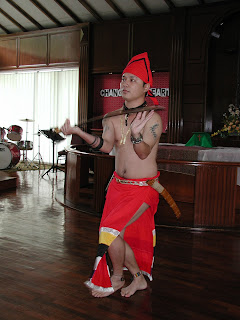
How does a biblical scholar confess his "sins" to one another (cf. James 5:16)?
Well, this is my 10 confessions as a budding NT scholar.
I confess that there is a BIG difference between a theologian and a biblical scholar. Theologians argue about things in the air and they can never come to an agreement. Biblical scholars argue about things in the text and they can never come to an agreement.
I confess that no matter how hard I tried reading Systematic Theology textbooks by Wayne Grudem and Millard Erickson, I am still not too sure whether theology can be systematic.
I confess that I have read a good bit of N. T. Wright and appreciate much of what he has to say, I am still not too sure whether Wright is right after all.
I confess that I have read James Dunn and learn much of what he has to say on Paul, and I wonder how many people are done with Dunn on the new perspective on Paul.
I confess that Richard Hays provides tremendous help in clearing the haze when I try to make sense of the function of Paul's use of the Hebrew Bible, whether it is an echo, an allusion, a citation, or a quotation.
I confess that Richard Hays, N. T. Wright, Rollin Grams, Stephen Fowl, Ben Witherington, and Michael Gorman have been instrumental in shaping the use of narrative approach in my investigation of Paul's sufferings in 2 Corinthians.
I confess that the two most memorable pilgrimages I took in the UK as a student were the visit to Chester Beatty Library where I finally had a glance of the P46 and the visit to British Library where I finally had a glimpse of the Codex Sinaiticus.
I confess that the highlight of my doctoral studies is the visit to ancient Corinth where I saw, felt, walked the Corinth that St Paul saw - not to mention the short visit to Acrocorinth (long gone were the 1,000 prostitutes that made the hill famous).
I confess that the Almighty has a very humorous way of dealing with a city boy like me when he sent me to two RURAL settings (I mean really ulu kampung) for my theological studies - in Massachusetts and Wales (ever wonder how a city boy survived that)?
I confess that many people in the seminary are confused about my personality - some think I am a sanguine, some think I am a melancholic, and some seriously think I am confused (or perhaps they are confused), and some question how I can be both at the same time (well, let's keep the guessing game on).
 Fortress Press announces a new book by Prof Helmut Koester: Paul and His World: Interpreting the New Testament in Its Context, Vol 1.
Fortress Press announces a new book by Prof Helmut Koester: Paul and His World: Interpreting the New Testament in Its Context, Vol 1.



































